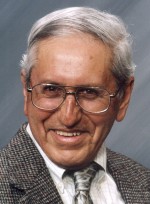The May 23 beatification of Salvadoran martyr Archbishop Oscar Romero stirs my memories of the only saint I ever met while he was alive. I was at a news conference he gave in Puebla, Mexico, at the meeting of Latin American bishops in 1979.
As I wrote in the foreword of a small book published in 1981 by Celebration Books in Kansas City — “A Martyr’s Message of Hope: Six Homilies,” by Oscar Romero — he was the antithesis of the Latin American caudillo, or chief, usually of imposing stature, grim visage and, sometimes, the morals of a thief.
“Romero was a short man; his face unbecoming but very sensitive. You could imagine from his face that he had experienced fear and suffering, but still had affection for all. Because they saw in Oscar Romero a man of the people, a neighbor, a barrio resident, the people of El Salvador could trust his word.”
[hotblock]
I continued: “Every Sunday the cathedral of San Salvador overflowed with people who came to hear his word. The congregation didn’t doze during the long homilies (they lasted one hour, an hour and a half, and even two hours). Rather, the audience was always full of life, applauding key points. Everywhere in that country of 4.5 million, his voice was heard. On Sunday morning, people gathered in their churches to hear his homilies broadcast by the archdiocesan radio. In the poorest barrios, houses (hardly houses because they are of cardboard) displayed the archbishop’s picture. The inhabitants would say: ‘This is our bishop.’
“He once said in an interview with Maryknoll magazine (of which I was editor) that he wanted to be the voice of the voiceless. And, in fact, when the Salvadorans heard the word of their archbishop they heard themselves. They were like the poor and humble man who had regained his voice. Perhaps because the people heard themselves (their deepest yearnings), the word of Archbishop Oscar Romero had great impact not only in El Salvador but everywhere.
“The archbishop was a man who came to his people armed not with death-dealing weapons but with life-giving, hope-filled words. The word was so powerful that the oppressive authorities had to kill him, hoping to silence it forever. But the word of Archbishop Oscar Romero still resounds in the barrios and in the actions of those who will follow his example in living not for themselves but for others. For me that is the true significance of Archbishop Oscar Romero’s words.”
I began the foreword to that little book, already yellowed with age on my bookshelf, by stating it would be presumptuous for me, a North American with a mix of Anglo-Saxon and Hispanic cultures to judge the impact of Archbishop Romero’s words on the Salvadoran people. I wrote:
“I would have to be a Salvadoran, one who experienced the oppression and exploitation since 1932 when the military forces killed more than 30,000 persons, one who lived in the sad darkness that fell over the people since that era, one as illiterate as the majority of the Salvadoran people, one who suffered torture, the disappearance of my family, and the oppression of the security forces. If I were one of these poorest Salvadorans, then I could judge clearly what Archbishop Romero was saying.”
Mexican-American theologian Father Virgilio Elizondo wrote in the epilogue: “In this small and insignificant man, God speaks to us in our day. He invites us, challenges us, offers us hope. His message is not sophisticated or difficult to understand. It is as ordinary and as extraordinary as the Gospel itself.”
Blessed Oscar, pray for us!



Share this story